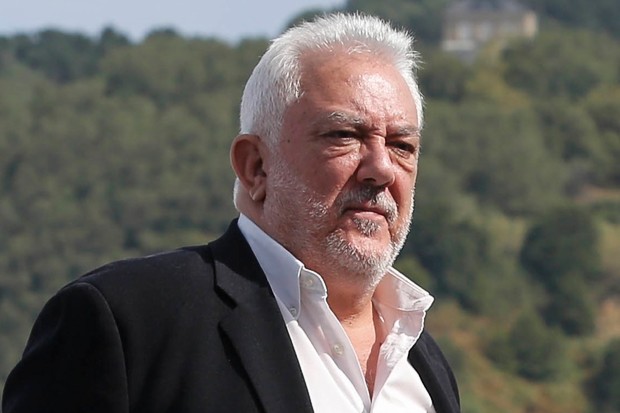Imanol Uribe • Director
“It’s good to talk about our wounds”
- Basque director Imanol Uribe is releasing Far from the Sea, a drama shot in Almería that tackles the aftermath of violent terrorist acts from a personal point of view

We spoke to Basque director Imanol Uribe ahead of the release of Far from the Sea [+see also:
trailer
interview: Imanol Uribe
film profile], a drama starring Eduard Fernández in the role of a terrorist who has recently been released from prison, and Elena Anaya, one of his victims. The movie caused quite a stir a year ago at the last San Sebastián Film Festival.
Cineuropa: Once again, you filmed in Almería, where you shot Bwana. Why did you choose this location?
Imanol Uribe: When I started writing the screenplay, we came up with the idea of shooting in the Cabo de Gata-Níjar Natural Park, an idea that came as much from Daniel Cebrián, the co-screenwriter, as it did from me: it’s a rugged landscape, like a rough diamond, and it’s dreadful but really beautiful. It’s a backdrop that fits this story really well, as it’s so harsh and gorgeous. There was an added complication, though: finding a shack on a beach, with nobody else around. We scouted the entire length of the coast, and the only one we found in all of Spain was on the Playazo de Rodalquilar.
This film also represents another return for you, as you revisit the subject matter of terrorism, after La muerte de Mikel and Días contados.
I wanted to delve into the consequences of violence on an intimate level – those acts that are committed hastily by young people and that sweep you up, along with the victim and their surroundings. Years ago, you couldn’t tackle this topic, because terrorism was an active issue in Spain, and when you limit yourself too much to current affairs, things change so much that it makes everything fall apart. Four years have passed since that violence came to an end, and even then it’s too early to talk about the subject, but I think we can at least make a start: more films will be made about it. It’s a topic that has had a profound effect on us for a long time, and that has to come out somewhere or other. The wounds are still there, they cause pain, and it’s good to talk about them.
How did you decide on the cast?
Eduard was on board the project even before we wrote the screenplay: we started scripting it with him in mind, as he had played a small part in my previous movie and I still really wanted to work with him because it was a wonderful experience. To portray the character of Santi, who is fairly passive during the first half of the film, I needed someone with an ability to say things through their gaze, which he has. The idea of casting Elena came up as we were finishing the screenplay, while we were throwing around various names.
Which narrative decisions did you make with the screenplay when it came to thinking about making the film? One example is that it doesn’t have any music.
That was a decision that was made later on: I thought it was going to feature music by Antonio Meliveo, who composed the score for Plenilune, but when we were editing the picture, I couldn’t see it with music. We tried out a few things, but all the music I tried the film just spat back at me. The silences suited it a lot better. Besides, I’m a bit obsessive, and lately the first thing that I pick up on in movies is excess: people really overindulge in the music, for emphasis. There’s just one song by Javier Ruibal, which plays over the end credits. It’s a very restrained film; I'm gradually turning more minimalistic, and I'm giving up hundreds of things and doing it in a very basic way, homing in on what I'm interested in and including little in the way of embellishments: I don't know if that's a good or a bad thing, but it's what my body is telling me to do.
(Translated from Spanish)
Did you enjoy reading this article? Please subscribe to our newsletter to receive more stories like this directly in your inbox.
















